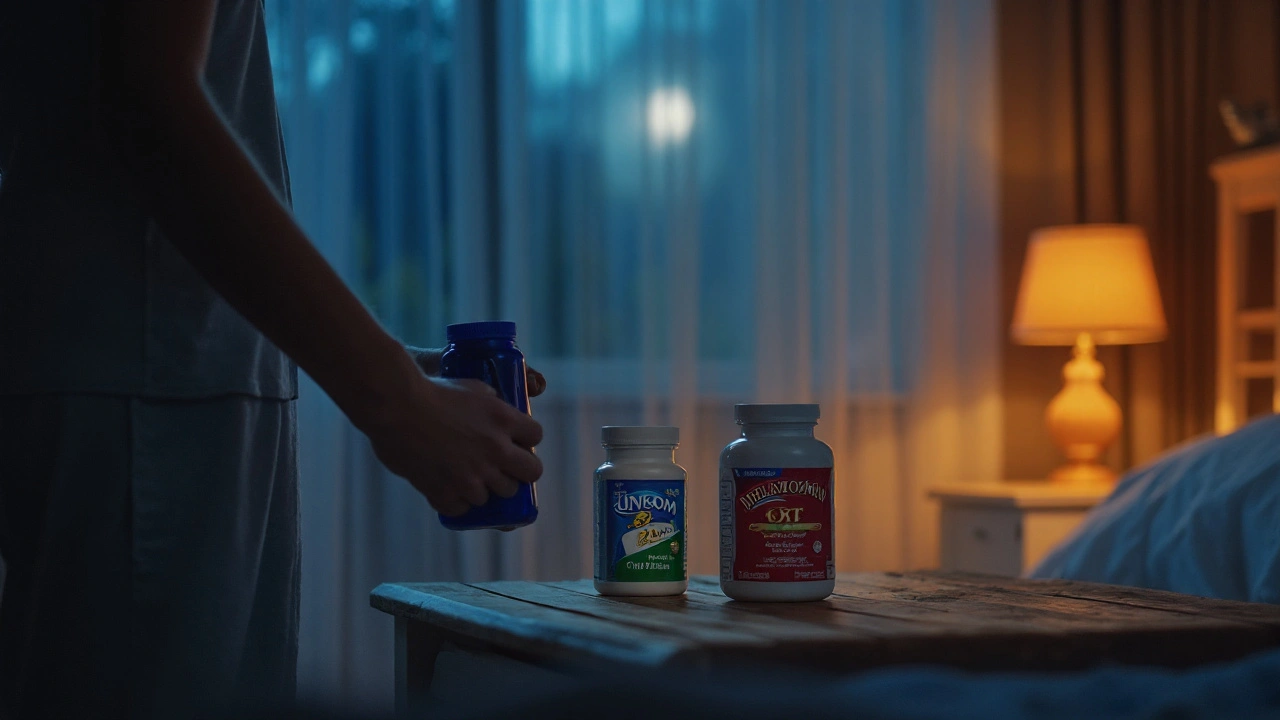Sleep Aid Alternatives: Natural, Safe Ways to Rest Better
When looking at Sleep Aid Alternatives, non‑prescription options that help you fall asleep and stay asleep without relying on strong prescription drugs. Also known as natural sleep remedies, it offers a range of choices for people who want a gentler approach to nighttime rest.
One of the most popular choices is Melatonin, a hormone that signals the brain it's time to wind down. Melatonin supplements mimic the body’s own signal, making it easier to drift off. Many users report that a low dose taken 30 minutes before bed cuts the time they lie awake. Sleep aid alternatives often start with melatonin because it’s cheap, widely available, and has a solid safety record when used correctly.
If you prefer plants, Valerian root, an herbal extract known for its calming effect is a go‑to. Valerian works by boosting GABA activity, which relaxes the nervous system. People who avoid synthetic chemicals love its earthy flavor and the fact it doesn’t leave a morning grogginess. Valerian is a clear example of how herbal sleep aids fit into the broader category of sleep aid alternatives.
Beyond pills, Sleep hygiene, a set of bedtime habits that promote natural sleep cycles can dramatically cut the need for any supplement. Simple steps like dimming lights an hour before bed, keeping the bedroom cool, and shutting off screens reduce blue‑light exposure. When you pair good sleep hygiene with other alternatives, you create a habit loop that signals your body it’s time to rest.
Another powerful tool is CBT for insomnia, a short‑term therapy that reshapes thoughts and behaviors around sleep. CBT‑I teaches you how to stop worrying about not sleeping, which often is the biggest barrier. Studies show that CBT‑I can be as effective as medication for chronic insomnia, and its benefits last longer because it changes the underlying mindset.
Magnesium supplements are also worth a look. This mineral supports muscle relaxation and helps regulate the neurotransmitters that control sleep. A daily dose of magnesium glycinate can make the transition to sleep feel smoother, especially if you’re prone to nighttime cramps. Like melatonin, magnesium fits neatly into the non‑prescription toolbox.
For those curious about newer trends, CBD oil has entered the conversation. Derived from hemp, CBD interacts with the endocannabinoid system, which influences stress and sleep quality. While research is still catching up, many users say a few drops before bed calm their mind enough to fall asleep faster. CBD illustrates how the market for sleep aid alternatives is expanding beyond traditional herbs.
All these options—melatonin, valerian, sleep hygiene, CBT‑I, magnesium, and even CBD—show that you don’t have to rely on strong prescription sedatives to get a good night’s rest. Below you’ll find articles that dive deeper into each alternative, compare costs, discuss safety tips, and share real‑world experiences. Keep reading to discover which mix of strategies might work best for your own sleep challenges.
About
Medications

